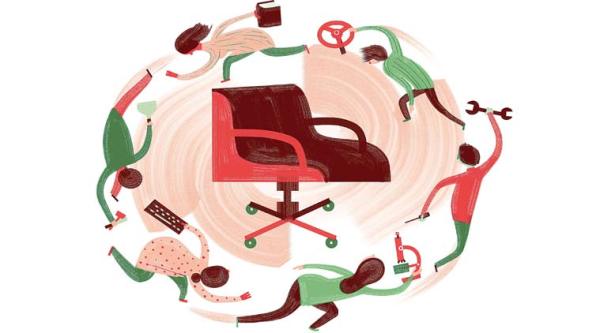Laterally yours
If you add value to the system, bureaucracy will be welcoming and accommodative

Four lessons which might be useful for future lateral entrants. (Illustration: C R Sasikumar)
The debate about lateral entrants into the upper echelons of the Government of India bureaucracy seems to have quietened down. I thought, therefore, that this might be a calmer and quieter moment to share a first-hand perspective on my more than two-and-a-half years of experience as a somewhat unusual “lateral entrant” to Bharat Sarkar. I say unusual, because I used to be an IAS officer before I took voluntary retirement from the service in 2009 and then re-joined the government seven years later.
Whichever way one looks at it, I think it is reasonable to assume that some out-of-the-box thinking must have taken place at the appropriate level to appoint me as secretary, Ministry of Drinking Water and Sanitation in February 2016. From my perspective, I was incredibly fortunate to be offered an opportunity to work in my country on a programme, the Swachh Bharat Mission (SBM), which had received the highest level of political support and leadership. I still remember the incredibly exciting moment, early morning in Washington DC on February 3, 2016, when I received the official notification of my appointment order and immediately calling my wife to let her know. She was equally thrilled, knowing that my 18-month long dream of being a part of the SBM, triggered by listening to Prime Minister Narendra Modi’s Independence Day speech on August 15, 2014, had actually materialised.
So how was the news of my appointment via lateral entry to GoI received by my civil service colleagues? For the most part positively, although one commentator alluded to me as a “savvy trapeze artist”! My former IAS batchmates, however, many of whom were fellow secretaries to the GoI, warmly welcomed me back and made me feel at home.
In the early months, colleagues in the central and state governments quickly accepted an “outsider-insider”, the term someone aptly used to describe me. Ultimately, it was about whether we as a ministry and as national coordinators of the SBM, were adding value and providing appropriate technical assistance and other support to the states and, most of all, to the districts and villages where the real action was. Working with the young, energetic and dedicated collectors and chief executive officers of Zila Panchayats across the country was perhaps the most satisfying part of the job.
I have to say that I found my experience of working in the water and sanitation sector across multiple countries, including in India, over a long period of time, a big advantage in my new job. The state governments were interested in learning about experiences of what had worked and not worked in similar situations elsewhere, and I was able to share some relevant lessons which could be adapted to the local context. One example stands out where I shared the experience I had acquired from my stint in Vietnam about triggering behaviour change for adopting the use of toilets among young mothers. This was about using the “lack of sanitation increases the chances of childhood stunting” argument, which worked well in that country and also resonated during our SBM behaviour change campaigns. I also had the ability to mobilise international behaviour change experts and bring them over to India to help us advance the sanitation agenda through evidence-based research.
Having now worked for over two-and-a-half years in the Ministry of Drinking Water and Sanitation, I can share four lessons which might be useful for future lateral entrants: First, listen carefully to and learn from your government colleagues at the central, state and district level; second, introduce new ideas gradually and don’t expect them all to stick immediately; third, bring in some young, fresh blood so that you can jointly innovate for results; and fourth and finally, since you are likely to be, like myself, on a fixed term contract, set yourself some firm goals with timelines and monitor progress on a regular basis. In my own case, with respect to the fourth lesson, I put up a white board in my office with a daily count of the number of days I had spent out of my two-year contract along with the number of days left, to remind me of the important tasks remaining to be done. I found this very useful indeed.
In conclusion, I am confident that future lateral entrants to the GoI will overcome any early hiccups they may have after taking up their new assignments. Sure, I was lucky to have had a soft landing, but am confident that the next wave of lateral entrants, even if their entry could be a little bumpier than mine, will both enjoy their stint as well as make a significant contribution to their sector.
The writer is Secretary, Ministry of Drinking Water and Sanitation. Views are personal
For all the latest Opinion News, download Indian Express App
More From Parameswaran Iyer
- Satyagraha then, Swachhagraha nowThe nation symbolically bound in the fabric of swachhata, with everyone offering their service for nation-building, would be most satisfying for the Mahatma...
- Wealth from wasteGOBAR-Dhan initiative will aid Swachh Bharat, increase rural incomes..
- Service For SwachhataIn three years, Swachh Bharat Mission has become a mass movement...








































No hay comentarios:
Publicar un comentario